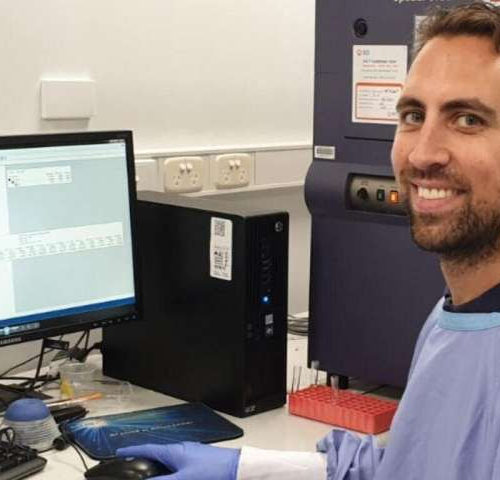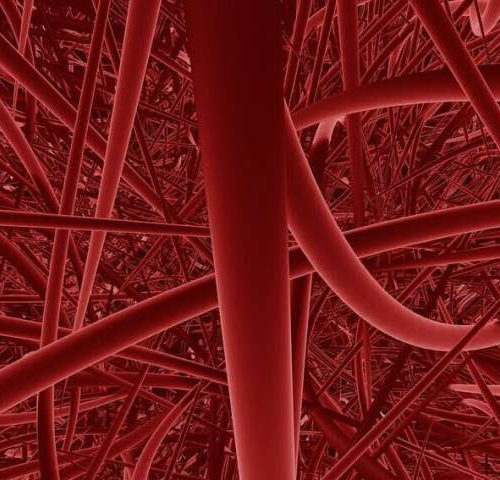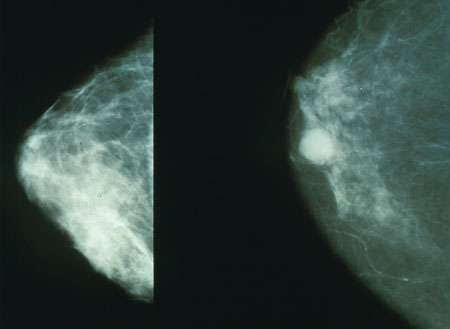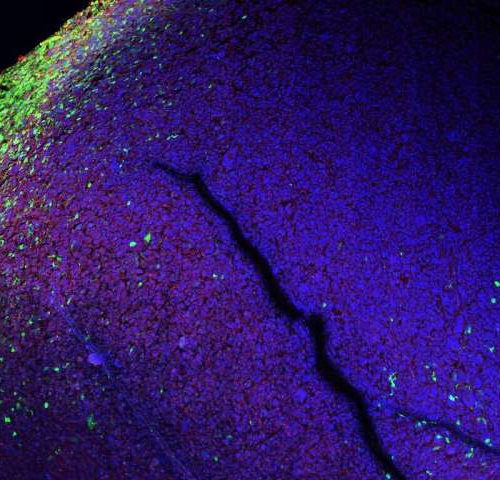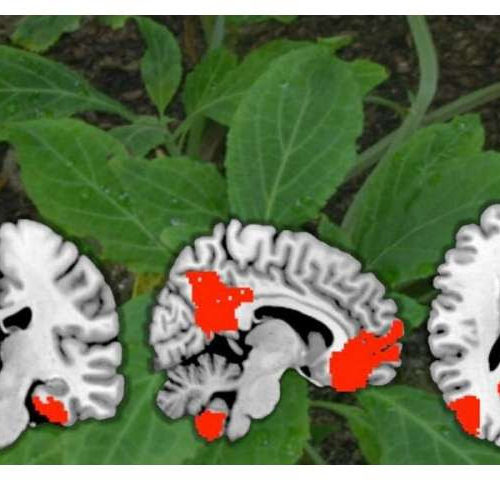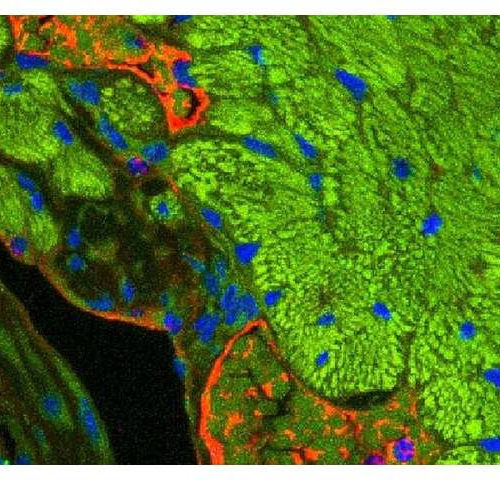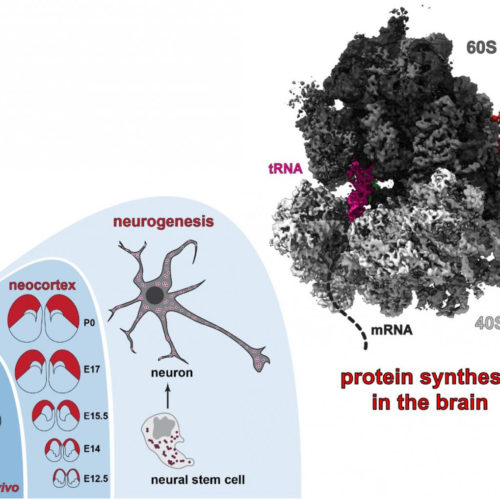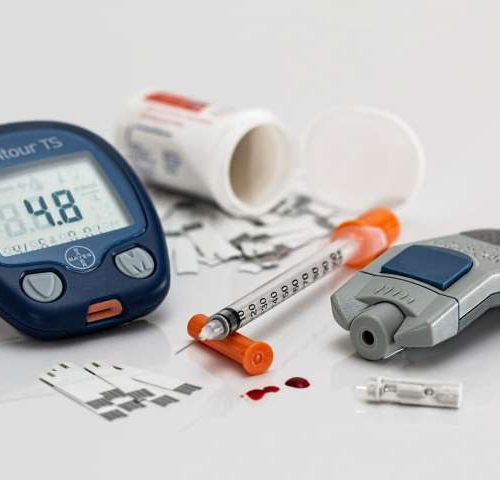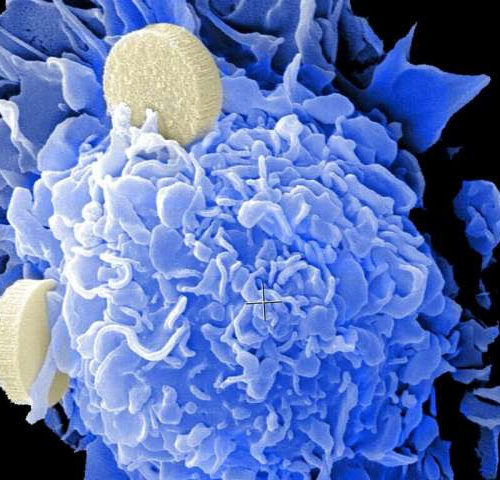by Monash University Associate Professor Menno van Zelm in his laboratory at Monash University. Credit: Monash University Australian researchers have revealed—for the first time—that people who have been infected with the COVID-19 virus have immune memory to protect against reinfection for at least eight months. The research is the strongest evidence for the likelihood that vaccines...
Year: <span>2020</span>
Enzyme discovery can help rein in blood vessels that fuel cancer
by The Scripps Research Institute Credit: Pixabay/CC0 Public Domain Most living things need oxygen to grow and thrive. Even cancerous tumors. That’s why tumors will readily sprout new blood vessels if their oxygen is starved, creating new lifelines for survival. A study published today from Scripps Research pinpoints the precise molecular machinery that makes this happen,...
New mammogram measures of breast cancer risk could revolutionise screening
by University of Melbourne Mammograms showing a normal breast (left) and a breast with cancer (right). Credit: Public Domain World-first techniques for predicting breast cancer risk from mammograms that were developed in Melbourne could revolutionise breast screening by allowing it to be tailored to women at minimal extra cost. Published in the International Journal of Cancer, the...
Molecular reporters expose the allies of the brain tumor
by Max Delbrück Center for Molecular Medicine Previously only suspected, now made it visible thanks to the molecular reporter: where human tumor cells and brain cells of a mouse meet, the tumor cells have a different identity than everywhere else (green). Credit: Gargiulo Lab, MDC Glioblastoma is the most common malignant brain tumor in adults. Roughly...
A first look at how the drug salvinorin A works in the brain
by Vanessa McMains, Johns Hopkins University Three different fMRI scans of the brain from a recent Johns Hopkins Medicine study show that the psychedelic salvinorin A (derived from the Salvia divinorum plant seen in the background) affects the default mode network (seen in red) — the area of the brain most active when a person is...
Cleaning up cellular trash helps hearts recover after heart attacks
by Vanessa McMains, Johns Hopkins University Photomicrograph showing heart tissue taken from the biopsy of a heart attack patient. Johns Hopkins Medicine researchers have shown that after a heart attack, cardiac muscle cells produce lots of CHIP (seen as green in the photo), a protein that clears away the “trash” of misfolded, damaged proteins to improve...
The Mysterious Link Between COVID-19 and Sleep
JAMES HAMBLIN DECEMBER 21, 2020 PETER CADE / GETTY The newly discovered coronavirus had killed only a few dozen people when Feixiong Cheng started looking for a treatment. He knew time was of the essence: Cheng, a data analyst at the Cleveland Clinic, had seen similar coronaviruses tear through China and Saudi Arabia before, sickening...
The brain’s protein factories at work
CHARITÉ – UNIVERSITÄTSMEDIZIN BERLIN IMAGE: A SNAPSHOT OF PROTEIN SYNTHESIS IN ACTION INSIDE THE DEVELOPING BRAIN. CREDIT: IMAGE: M.L. KRAUSHAR/CHARITÉ Protein synthesis is a finely tuned process in the cell by macromolecules known as ribosomes. Which regulators are responsible for controlling protein synthesis in the brain, and how do they exert their control on the...
New drug combination could improve glucose and weight control in diabetes
by eLife Credit: CC0 Public Domain Scientists have shown that adding an experimental cancer drug to a widely used diabetes treatment improves blood glucose control and weight loss in mice, according to a study published today in eLife. The results pave the way for clinical studies of the new drug combination as a more effective long-term treatment...
Study finds cancer survivors run greater risk of developing, dying from second cancers
by American Cancer Society Credit: Unsplash/CC0 Public Domain A new American Cancer Society study finds that adult-onset cancer survivors run a greater risk of developing and dying from subsequent primary cancers (SPCs) than the general population. Cancers associated with smoking or obesity comprised a majority of SPC incidence and mortality among all survivors. The study appears...

